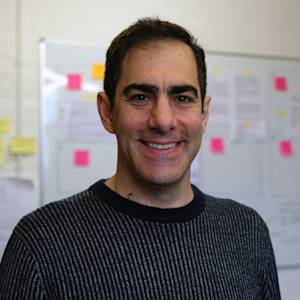As a father of three I can remember the joy and surprise when each one of my little babies’ personalities seemed to magically switch on when they were only a few months old. One of them was an obvious extrovert, another a water baby, and my third liked kicking balls before she could walk. Each one of my now-teens sees the world differently and has different strengths and activities they love, much of which, in retrospect, were obvious parts of their personalities even as toddlers. They are completely different people.
Yet, what they have in common is a confidence and independence that my wife and I tried to instill in them and which was nurtured by a fantastic childminder they all attended in their earliest years.
One of the reasons I’ve been such a passionate advocate for childminding is because of a strong belief that childminders are the best way for the country’s youngest children to be supported to become both school ready and life ready. This is crucially important - I’ve visited schools across Britain (and the world) where it is obvious which children never received this gift - holding them back for years later, and potentially well into adulthood. This was further reinforced at a UNESCO conference I attended last September (which had the stuffy title of “International congress on brain sciences, early childhood care and education”) where expert after expert showed that all advances in brain science over the past decade have provided even more evidence of the crucial importance of a child’s first 1,000 days. The opportunities they get to learn, play and socialise during this period can literally mean the difference between academic (and career) success and failure.
This Government seems to agree, with its pillar of Giving Children the Best Start in Life, with a target to ensure 75% of children reach a good level of development in the Early Years Foundation Stage assessment by 2028, defining this in terms of children’s Confidence, Independence and Social Skills.

We have partnered with over 20 other early years organisations to help define what skills children need to know to be defined as ‘school ready’ to support the government in this goal. We are thrilled that this has now launched at ‘Starting Reception’ – the first sector-wide definition of school readiness that sets out clearly the skills children need to be learning by the time they start school. This includes skills around the following areas for parents to focus on (all of which you are already working on within the EYFS):
- Growing independence
- Play, creativity and curiosity
- Building relationships and communicating
- Physical development
- Healthy routines
At tiney, we often talk about life readiness rather than simply school readiness, because we know that all children develop at their own pace — and for some, including neurodivergent children or those who’ve experienced trauma or instability, including children who are emerging from the post covid pre-school years, who haven’t had the full high quality early years experience, the traditional idea of “readiness” can feel limiting or exclusionary.
We champion an inclusive view: that every child can thrive when supported with warmth, consistency, and high-quality early education tailored to their unique ways of experiencing and engaging with the world.
The tiney education team is already working on more ways to support our childminders to help the children they work with to be school ready in these areas. We’ve just overhauled our fantastic CPD offer in the tiney app, are in the process of improving the data we hold around child progress and have a couple of amazing webinars lined up this month all around the theme of ‘life readiness’. One of these events, with Dr Sue Allingham, is open to the whole sector - you can RSVP here.
I feel honoured to be partnering with our childminders in the crucial work they are doing with over 6,000 children across England every day. The impact you have on your little clients is something that will unfold over many years and even decades to come.







